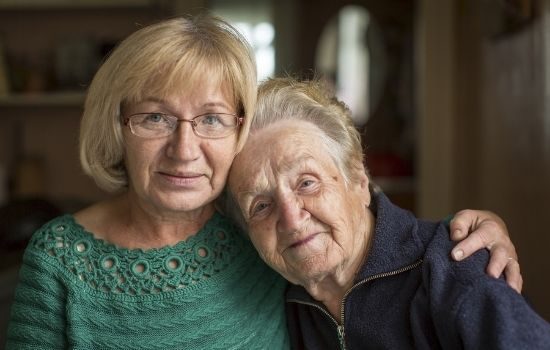Important Traffic Notice: Due to road construction on Southwest Highway directly in front of our Chicago Ridge location, traffic may be heavier than usual. Please plan ahead and allow extra time to arrive safely. Thank you for your patience and understanding!
February 23, 2023
Colorectal Cancer FAQs: 12 Common Questions about Colorectal Cancer

Patients newly diagnosed with colon or rectal cancer may have many questions about the disease, options for treatment, and recovery. Our oncologists have put together the answers to commonly asked questions from colorectal cancer patients. For people at risk of developing colorectal cancer, it’s important to be aware of risk factors and ways to reduce that risk with regular screening and healthy lifestyle choices.
It’s even more important for patients to feel educated about colorectal cancer so that they can make informed choices about their health and treatment path. Here are some of the most frequently asked questions about colorectal cancer.
- What’s the difference between colon and rectal cancer?
- What causes colorectal cancer?
- What are colorectal cancer symptoms?
- Can I reduce my risk of developing colorectal cancer?
- What is a screening colonoscopy?
- Are there other ways to screen for colorectal cancer?
- What is the prognosis for colorectal cancer patients?
- How is colorectal cancer diagnosed?
- How is colorectal cancer treated?
- Does treatment for colon or rectal cancer cause side effects?
- Will I need a colostomy after surgery?
- How do I access the most advanced colorectal cancer treatments?
1. What’s the Difference Between Colon and Rectal Cancer?
Colorectal cancer is the category given to gastrointestinal (GI) cancer that starts in the colon or rectum. Colon cancer starts in the colon (large intestine or bowel). Rectal cancer begins in the rectum, the tube that connects the bowel to the anus. The starting point of the cancer is what the diagnosis will be called, and the treatments will be adjusted based on the specific type.
2. What Causes Colorectal Cancer?
Colorectal cancer begins in the innermost layer of the colon or rectal lining, where a mutation happens in the colon lining, creating a polyp. Polyps are abnormal growths that have the potential to develop into cancer. Almost all colorectal cancers start with a precancerous polyp in the colon or rectum. If untreated, colorectal cancer can spread (metastasize) to other parts of the body via lymph nodes or blood vessels.
If you have close family members with the disease or a history of polyps, your risk of developing colorectal cancer increases.

Most polyps are harmless or benign. Only about 5% to 10% of polyps become cancerous, which takes 10-15 years to develop.
3. What Are Colorectal Cancer Symptoms?
In the early stages, colorectal cancer rarely causes symptoms. As the disease progresses, signs of colorectal cancer can include:
Blood in or on your stool or toilet paper
Changes in bowel habits – constipation, diarrhea, or feeling like the bowels have not completely emptied
Stomach pain, aches, or cramps that don’t go away
Vomiting
Bloated stomach
Unintended weight loss
Fatigue and shortness of breath
4. Can I Reduce My Risk of Developing Colorectal Cancer?
The most effective way to reduce your risk of developing colorectal cancer is regular screening. Screening tests are used to look inside the colon and rectum to see if there are any polyps that should be removed. In many cases, the doctor will remove polyps that may not be cancerous but have a possibility of becoming cancerous. This greatly lowers the likelihood of cancer developing if the polyps are removed.

There are several risk factors for developing colorectal cancer that you can’t control, such as your age, family history of the disease, and having a condition like Crohn’s disease or ulcerative colitis. But there are a few risk factors you do have control over. You can reduce your risk if you:
Get regular physical activity
Maintain a healthy weight
Eat a diet high in vegetables, fruits, and fiber; low in fats and fried foods
Eat very little red or processed meats
Don’t use tobacco
Don’t drink excessively
5. What is a Screening Colonoscopy?
The best way to find polyps so they can be removed is colorectal cancer screening, beginning at age 45. You may start testing earlier if you have certain risk factors, such as inflammatory bowel disease or a family history of colorectal cancer or polyps.
A colonoscopy is the most effective screening method. After your bowel is cleared of stool, your doctor will insert a small, lighted tube with a camera into your rectum to check for polyps in the whole colon and rectum. During a colonoscopy, the doctor can remove any precancerous or cancerous polyps. If other screening tests detect polyps, you’ll have a follow-up colonoscopy to remove polyps. Recommended every ten years for people at normal risk.
6. Are There Other Ways To Screen For Colorectal Cancer?
You have likely heard about the at-home tests for colorectal cancer, including Cologuard. Your doctor will explain the pros and cons of this to help you make an informed decision based on your risk level. In general, if you’re at average risk for developing colorectal cancer, the at-home test may be an acceptable starting point. However, if your risk is higher due to factors out of your control, a colonoscopy is likely to be the best option.
Cologuard, or other tests like it, are stool tests. It can detect abnormal cells in the stool that could mean pre-cancer or cancer is present. If so, a colonoscopy is the next step so a physician can see inside the colon.
7. What Is The Prognosis For Colorectal Cancer Patients?
About 90% of colorectal cancer patients are alive five years after diagnosis if their cancer is found early and treated effectively. The longer it’s left untreated, the lower the survival rate. (Again, another reason why screening is so important.) If cancer has metastasized (spread) to nearby organs or lymph nodes, survival drops to 73% at five years. If it has metastasized to distant parts of the body, five-year survival is 17%.
8. How Is Colorectal Cancer Diagnosed?
If your doctor removes a suspicious polyp during a colonoscopy and it comes back positive for cancer, you’ll likely see an oncologist next. The oncologist, who is a cancer specialist, will examine you and perform some or all of these tests:
Complete blood count via a blood draw
Comprehensive metabolic count measures 14 different blood substances
Carcinoembryonic antigen assay
X-rays
Computed tomography (CT) scan
Magnetic resonance imaging (MRI) scan
Ultrasound
Biopsy of tissue samples to look for genetic mutations that may tell the doctor which therapies would work best
9. How is Colorectal Cancer Treated?
Treatment for colorectal cancer depends on your cancer’s stage, location, overall health, and treatment preferences.
If the cancer is smaller, and the surgeon feels they can get all of it, then surgery is used to remove that part of the colon, reconnecting it to work again on its own. Later-stage colorectal cancer patients may not have surgery due to the amount of the colon that would need to be removed or the distance it’s spread inside of the body. Surgery is more common for rectal cancer.
Other colorectal cancer treatments that may be used in addition to surgery or instead of surgery include:
Chemotherapy to shrink tumors and reduce symptoms. For some patients, this is a 48-hour treatment that requires the patient to go home with the chemo and then return a couple of days later to disconnect.
Radiation therapy to be sure any cancer cells left behind during surgery are also killed. It’s also used to treat tumors that appear in other areas of the body.
Targeted therapy focuses on the genes and proteins that help colorectal cancer cells grow uncontrollably. This is an effective way to treat some advanced colorectal cancers that have specific gene mutations.
10. Does Treatment for Colon or Rectal Cancer Cause Side Effects?
Surgery can cause an increased risk of:
Infection
Blood clots
Bleeding
Very rarely, a leak develops where the colon was rejoined
Chemotherapy for colorectal cancer is typically Folfox. This can cause side effects such as:
Fatigue
Cold sensitivity, especially on the hands and feet
GI issues such as diarrhea and vomiting
Increased risk of infection due to a lowered white cell count
Low red blood cell count, which causes anemia
Most patients who receive Folfox chemotherapy are able to keep their hair.
Radiation therapy can cause these side effects:
Discomfort or irritation in the rectum
Bladder irritation causing painful urination
Diarrhea
Painful bowel movements
Blood in the stool or urine
Bowel incontinence
Fatigue
11. Will I Need A Colostomy After Surgery?
Probably not; the need for a colostomy is rare. A colostomy is an opening the surgeon places in the body that allows waste to be removed from the colon rather than going through the rectum. It’s less common for colon cancer patients. It may be needed for some rectal cancer patients. Although even then, it’s often temporary.
12. How Do I Access the Most Advanced Colorectal Cancer Treatments?
Affiliated Oncologists participate extensively in clinical research at our cancer centers in the South Chicago suburbs. The best source of information regarding clinical trials for colorectal cancer is your oncologist. They will know which trials are currently available and if there is one for your specific type and stage of cancer.
Expert Colorectal Cancer Treatment At Affiliated Oncologists
The expert oncologists at Affiliated Oncologists provide personalized, leading-edge technology and community-based care in the south Chicagoland area. Treatment facilities are in Chicago Ridge, Hazel Crest, Mokena, Oak Lawn, and Palos Heights, Illinois.
We will develop an individualized colorectal cancer treatment plan and be with you throughout your treatment and journey to wellness. We also provide a second opinion on diagnosis and treatment plans.
Categories: Colorectal Cancer